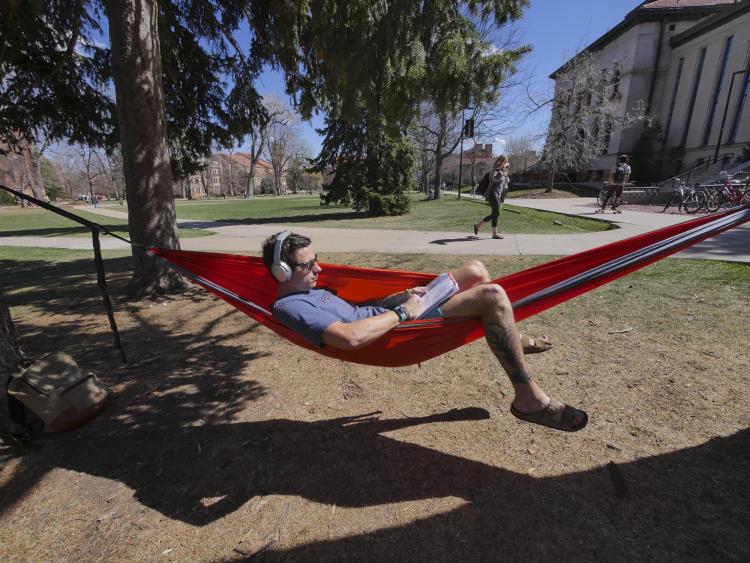Making the most of your summer
As you begin your summer break, take some time to reflect on your past year. What were your highlights? What classes did you enjoy? Are you happy with your grades? Is there anything you wish you had done differently?
With the answers to these questions, consider how you can use summer break to get ready for next year. Below are some common end-of-the-year reflections to help you get started.

If your GPA is not quite where you want it to be...
- Consider enrolling in summer session courses. There are exclusive course offerings and a chance to get into popular courses with smaller class sizes. Taking a summer course can also help you focus on one class at a time.
- Plan to attend free workshops from Counseling and Psychiatric Services in the fall. These workshops, including the Bounce Back program and Getting It Done, help develop academic and time-management skills. The fall workshop schedule will be available in August.
- Explore other academic support resources available for students.
If your classes didn’t feel like the right fit for you...
- Schedule an appointment with your advisor. Your advisor can help you identify your academic, career and life goals. From there, he or she can help you explore a variety of options for your academic journey.
- Connect with Career Services to find a major or program that fits with your personality traits and goals. There are various assessments for students and alumni to discover strengths and potential career paths. If you are deciding on a major or thinking about making a switch, chat with a career development advisor about your options.
If you are looking for a unique academic experience...
- Consider Education Abroad. The application deadline for many Education Abroad programs is Oct. 1. Use the summer months to explore program options and apply for a unique experience in a different place.
- Apply to the Undergraduate Research Opportunities Program (UROP). In a UROP project, you can explore academic interest beyond the classroom. Additionally, get hands-on experience with research or creative production and develop rapport with faculty.
Involvement
If you are looking to get more involved...
- Browse the student organization directory on BuffConnect. Find student groups based on your hobbies, passions or major, and connect with groups you are interested in joining.
- Consider student employment on campus. Campus jobs are a great way to meet other students, gain experience for your résumé and earn money.
- Look into joining an intramural or club sports team in the fall.
Career development
If you are looking for a job or internship...
- Create or update your Handshake account. Career Services vets and approves more than 100 jobs and internships a day for employers wanting to hire CU Boulder students. Learn more about setting up your Handshake account.
- Prepare for your job search. Career Services has resources to write résumés and cover letters, practice interview skills and navigate networking.
If you are looking to develop skills or experience for your résumé...
- Consider joining CU GOLD in the fall. This program provides free leadership development opportunities to all students. You can also register for the Core Leadership Program to attend seminars on a variety of leadership topics.
- Develop additional skills and knowledge with Lynda.com. This online library of video tutorials teaches a wide variety of software tools and skills. The full range of these tutorials is free for current students.
Health and wellness
If you feel like your stress levels were high this year...
- Explore SilverCloud Health. This free, confidential online tool lets you take charge and manage your emotional health and well-being. There are modules that teach skills around stress management, anxiety and depression.
- Develop habits in managing stress and anxiety. Finding techniques that work for you and practicing them now can make them easier to do during the school year.
- Establish other wellness habits and routines to manage stress. This can include sticking to a consistent sleep schedule, trying new healthy recipes and getting regular exercise. Learn more about living well.
- Practice self-care. Whether you only have a few minutes or plenty of time, here are some ideas to feel better during stressful times.
Categories: Getting Involved


